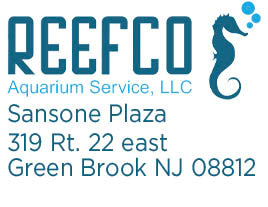Aquacultured Vs. Wild-Caught Corals
When it comes to building a thriving and beautiful reef tank, the choice between aquacultured and wild-caught corals is an important one. The concern for the environment and the desire to protect our oceans has led to increased interest in aquaculture, and the practice of breeding and raising corals in controlled environments.
In this article, we will explore the benefits of choosing aquacultured corals for your reef tank and why they are a sustainable and vibrant addition to any aquarium.
The Difference Between Aquacultured & Wild-Caught Corals
Aquacultured and wild-caught corals represent two distinct sources within the marine aquarium trade, each with its own set of implications for coral reefs and sustainability.
Wild-Caught Corals
Wild-caught corals, as their name implies, are taken from natural coral reefs. They can be visually stunning and are seen as authentic by some. However, this kind of collection is far from perfect and can be damaging to the species as a whole. It is especially hard to sustain wild-caught corals during shipment or in the tank itself, since they are used to very precise oceanic conditions and any changes can cause them to sicken and perish.

Additionally, taking the corals away from their natural environment hinders their ability to repopulate, and this extraction can be a real danger to their conservation.
Aquacultured Corals
In contrast to wild-caught corals, those aquacultured are harvested from a small part of a natural coral and then nursed in a controlled environment before being fragmented and shipped. This process is less damaging to the environment as only a tiny part of the coral is taken.
Additionally, the coral can regenerate itself, maintaining the reef. Aquacultured corals are generally more durable and hold their colors better, as they are used to the conditions of tanks thanks to their farming. Therefore, any minor changes won't affect them detrimentally. For those who wish to observe natural beauty without causing harm, aquacultured corals are usually the best option.

The Advantages Of Aquacultured Corals
Aquacultured corals may cost more than maricultured corals, but the extra investment is well worth it. Corals that have been bred and raised in aquariums are extremely hardy and adapt quickly to new environments. They have never been exposed to the diseases and infestations that wild corals may carry. This reduces the risk of introducing pests or diseases into your aquarium.
Sustainability & Conservation
Supporting aquaculture and mariculture farms is a great way to contribute to the sustainability of coral reefs and the communities that rely on them.
By purchasing aquacultured corals, you are helping to reduce the demand for wild-caught corals, which can have a negative impact on natural reef ecosystems. Coral farms provide employment opportunities for locals and help protect and promote the health of reefs worldwide.

Quality & Coloration
Aquacultured corals are known for their vibrant and stable coloration. The controlled environment in which they are grown allows for optimal conditions that enhance their beauty. These corals have been bred and raised with care, resulting in healthy and resilient specimens for your reef tank.
With their striking colors and patterns, aquacultured corals can transform your aquarium into a captivating underwater paradise.
Disease Resistance & Adaptability
One of the major advantages of aquacultured corals is their resistance to diseases. The controlled environment in which they are raised minimizes the risk of exposure to pathogens, ensuring that you receive healthy and disease-free corals. This is particularly important for stress-sensitive corals such as Acropora corals and anemones.
Furthermore, aquacultured corals have already adapted to aquarium conditions, making them more likely to thrive in your tank compared to their wild counterparts. This adaptability is a testament to their resilience and makes them an excellent choice for both beginner and experienced reef tank enthusiasts.
Supporting Local Businesses & Conservation Efforts
By choosing aquacultured corals, you are supporting local businesses and conservation efforts. Many coral farms worldwide are dedicated to providing high-quality corals while minimizing the impact on natural ecosystems. These farms employ locals and contribute to the economic development of their communities.
When you purchase aquacultured corals, you are not only enhancing the beauty of your reef tank but also making a positive impact on the environment and the lives of those involved in coral farming.
Ensuring Responsible Aquaculture Practices
It is important to ensure that the aquacultured corals you purchase come from reputable sources that adhere to responsible farming practices.
Look for suppliers who prioritize the health and well-being of their corals, follow strict quarantine procedures, and employ sustainable farming techniques. A reputable supplier will provide you with detailed information about the origin and cultivation methods of their corals, giving you peace of mind that you are making an ethical choice.
Acclimating Aquacultured Corals To Your Reef Tank
When introducing aquacultured corals to your reef tank, it is essential to acclimate them properly. Start by gradually adjusting the water parameters in your reef tank to match those of the corals' original environment. This will help minimize stress and ensure a smooth transition for the corals.
Additionally, provide adequate lighting and water flow to support their growth and well-being. Following these guidelines will help your aquaculture corals thrive in their new home.
Conclusion
Aquacultured corals offer numerous advantages for reef tank enthusiasts. With their vibrant colors, disease resistance, and adaptability, they are a sustainable and vibrant addition to any aquarium. By choosing aquacultured corals, you are supporting conservation efforts, local businesses, and responsible aquaculture practices.
With the growth of the aquaculture industry, the availability of high-quality and ethically sourced corals continues to increase. Make the right choice for your reef tank and enjoy the beauty and sustainability of aquacultured corals.



